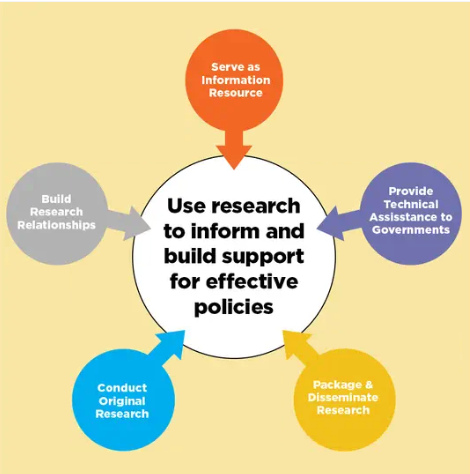The MAHA Commission released its report last week: The MAHA Report: Make Our Children Healthy Again. Assessment.
This is one impressive report, forcefully written and tightly documented (it cites my work, among that of many others).
Overall, it paints a devastating portrait of how our society has failed our children.
It begins by stating that “The health of American children is in crisis” due to:
- Poor diet
- Aggregation of environmental chemicals
- Lack of physical activity and chronic stress
- Overmedicalization
The result: high rates of obesity, type 2 diabetes, neurodevelopmental disorders, cancer, allergies and mental health problems among kids.
Here are some selected items I particularly appreciated in the report. The bullet points are direct quotes.
On poor diet
- Most American children’s diets are dominated by ultra – processed foods (UPFs ) high in added sugars , chemical additives , and saturated fats, while lacking sufficient intakes of fruits and vegetables.
- Pesticides , microplastics , and dioxins are commonly found in the blood and urine of American children and pregnant women— some at alarming levels.
- Children are exposed to numerous chemicals , such as heavy metals , PFAS , pesticides , and phthalates, via their diet, textiles, indoor air pollutants, and consumer products.
- To get into schools , many food companies have reformulated their products with minor ingredient adjustments to qualify for the federal Smart Snack program by meeting the school nutrition standards, which children can purchase separate from school meals.
The driving factors for poor diets
- Consolidation of the food system
- Distorted nutrition research and marketing
- Compromised dietary guidelines
On the dietary guidelines
They maintain problematic reductionist recommendations, such as:
- Advising people to “reduce saturated fat” or “limit sodium” instead of focusing on minimizing ultra-processed foods.
- Treating all calories similarly, rather than distinguishing between nutrient-dense foods and ultra-processed products.
- Remain largely agnostic to how foods are produced or processed: There is little distinction between industrially processed foods and home-cooked or whole foods if their nutrient profiles look similar.
- Added sugars, saturated fats and sodium are treated as proxies for ultra-processed foods. For instance, a cup of whole-grain ready to eat fortified breakfast cereal and a cup of oatmeal with fruit might both count as “whole grain servings,” and the guidelines do not weigh in on differences in processing.
They also,
- Do not explicitly address UPFs.
- Have a history of being unduly influenced by corporate interests .
On food systems
- The greatest step the United States can take to reverse childhood chronic disease is to put whole foods produced by American farmers and ranchers at the center of healthcare.
- Traditional Field Crops vs. Specialty Crops : Historically, federal crop insurance programs have primarily covered traditional field crops like wheat , corn , and soybeans, while providing much less support for specialty crops such as fruits, vegetables, tree nuts, and nursery plants.
On Corporate Capture
- Although the U.S. health system has produced remarkable breakthroughs, we must face the troubling reality that the threats to American childhood have been exacerbated by perverse incentives that have captured the regulatory bodies and federal agencies tasked with overseeing them .
- Limited comparisons between industry-funded research versus non- industry studies have raised concerns over potential biases in industry-funded research…Additionally, some industry leaders have engaged in promoting ghostwriting and sponsored reviews to influence the scientific literature.
- Notably, this ghostwriting strategy mirrors tactics used by the tobacco industry to distort scientific consensus is largely propelled by “corporate capture,” in which industry interests dominate and distort scientific literature, legislative actions, academic institutions, regulatory agencies, medical journals, physician organizations, clinical guidelines, and the news media.
- The pharmaceutical industry, with its vast resources and influence, is a primary driver of this capture, though similar dynamics pervade the food and chemical industries.
Research recommendations
- GRAS Oversight Reform: Fund independent studies evaluating the health impact of self-affirmed GRAS food ingredients, prioritizing risks to children and informing transparent FDA rulemaking.
- Nutrition Trials: NIH should fund long-term trials comparing whole-food, reduced-carb, and low-UPF diets in children to assess effects on obesity and insulin resistance.
- Large-scale Lifestyle Interventions: Launch a coordinated national lifestyle-medicine initiative that embeds real-world randomized trials-covering integrated interventions in movement, diet, light exposure, and sleep timing-within existing cohorts and EHR networks.
Comment
The report has been criticized for not getting some of the science right. The agriculture industry is particularly concerned about the attack on the chemicals it uses. It is said to be outraged by the report. The report did throw Big Ag this bone: “Today, American farmers feed the world, American companies lead the world, and American energy powers the world.”
But the report raises one Big Question: What policies will this administration come up with to deal with these problems? These, presumably, will be in the next report, due in about 80 days.
This is an extraordinary report, a breath of fresh air in many ways, and I would love to know who wrote it.
But to fix the problems it raises will require taking on not only Big Ag, but also Big Food, Big Pharma, Big Chemical, and other industries affected by these and its other recommendations (the report also says a lot about drugs and mental health). Big Ag has already weighed in. Others are sure to follow.
Oh. And it’s hard to know how policies can be implemented, given the destructive cuts to FDA, CDC, and NIH personnel and budget.
I will be watching this one. Stay tuned.
Resources
Additional resource


